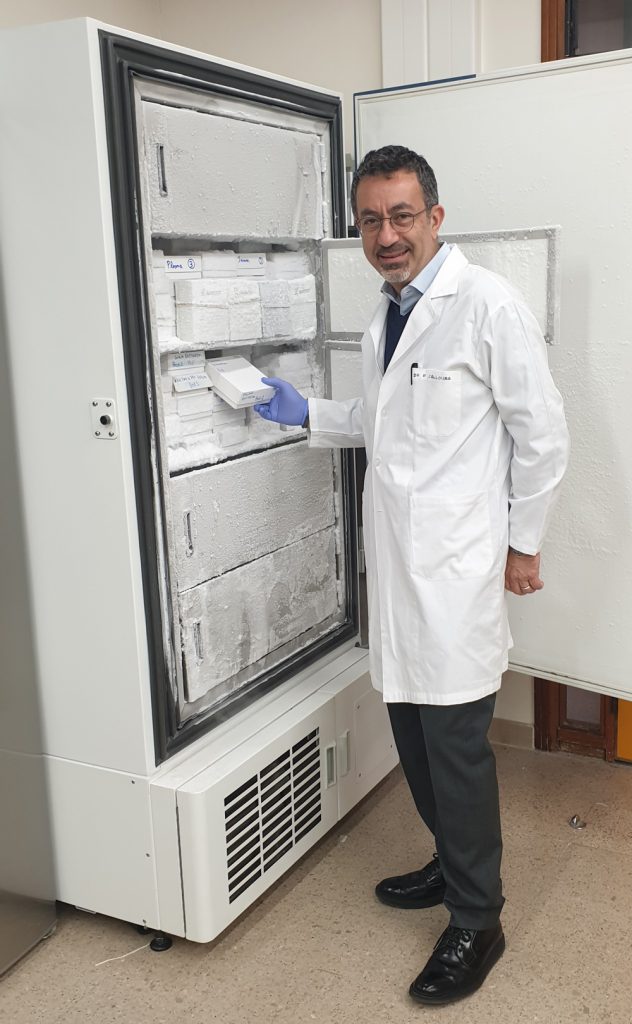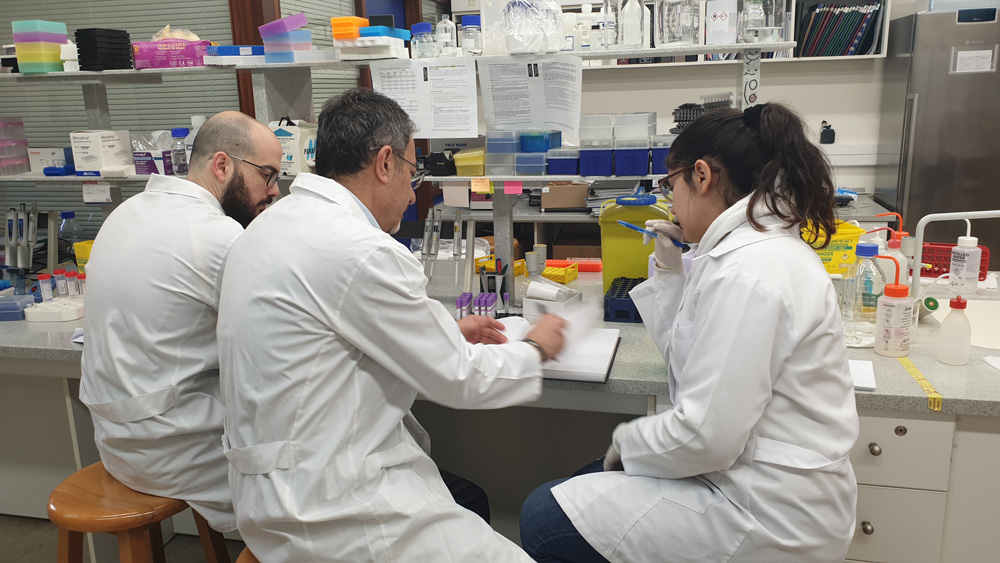Exposing the roots of heart disease and diabetes
Pierre Zalloua, Professor & Chair, Department of Molecular Biology and Genetics at the College of Medical and Health Sciences at Khalifa University.

An accomplished human population geneticist, Pierre Zalloua is a leading authority on the genetics of Middle Eastern populations. At Khalifa University, he chairs the Department of Molecular Biology and Genetics and has introduced a PhD-level course on environmental genetics at the university’s College of Medical and Health Sciences.
What are your research objectives?
My primary focus is the identification of biological markers and environmental factors related to the risk of developing type 2 diabetes and coronary artery disease. Ultimately, our goal is to use precision medicine to tackle these conditions, which involves dividing people into risk groups and tailoring preventive and therapeutic approaches based on an individual’s specific risk profile.
Why is it important to carry out research on these diseases in the Middle East?
The Middle East and North Africa region has one of the highest prevalences of diabetes in the world and an increasing number of coronary artery disease patients. When I worked in Lebanon, I established a diabetes database of 10,000 patients, which became part of one of the world’s largest global coronary artery disease studies (CARDIoGRAM+C4D). I am now planning a study in the United Arab Emirates that will involve coronary artery disease and diabetes patients. To facilitate this research, we have already established partnerships with local clinics in Abu Dhabi, including Sheikh Shakhbout Medical City and Cleveland Clinic Abu Dhabi.
Tell us about your most exciting findings so far.
Within the CARDIoGRAM+C4D project, we published results indicating that at least 150 genetic markers are associated with coronary artery disease. We also know that there are more than 100 markers in type 2 diabetes. Each marker will incrementally increase the risk of developing the disease, but this can vary among different individuals, let alone different groups or populations. Building on this knowledge, we are exploring additional factors that can either mitigate or exacerbate these risks.
For example, we found that high levels of high-density lipoproteins, commonly known as good cholesterol, provide a degree of protection for individuals who are genetically predisposed to diabetes. Conversely, elevated blood levels of homocysteine and lipoprotein(a) heighten the risk of developing coronary artery disease, especially in individuals with a family history of the disease.
What excites you the most about your work?
It is always the potential for our published work to inform public health guidelines and shape health policies. This is at the heart of my research and teaching work. In addition, we are launching a new PhD programme in Public Health at Khalifa University, where I will be teaching a course on environmental genetics that explains how the interaction between genes and the environment is essential to public health. I also teach this course at the T.H. Chan Harvard School of Public Health at Harvard University in the United States.
Are there any emerging genetic technologies that you find particularly promising?
I am particularly excited about single-cell genomics, which enables us to examine the gene expression of individual cells. In the past, we used to sequence the genome of white blood cells, but we can now compare the genomes of various cell types individually. In the case of diabetes, we can analyse the DNA of various tissues, including the adipose tissue (fat), liver and pancreas, to understand what’s going on at the cellular level, which will significantly advance our knowledge of the pathology of the disease.
What is it like working at Khalifa University?
I joined Khalifa University in March 2021 and was warmly welcomed into its safe, and respectful academic environment. During my time there, I’ve formed a close-knit group of around 10 like-minded faculty members who share my interests. We enjoy meeting often, and we work together so that we all achieve results faster and more efficiently.
Pierre Zalloua
Professor & Chair, Molecular Biology and Genetics
College of Medical and Health Sciences (CMHS)
pierre.zalloua@ku.ac.ae




